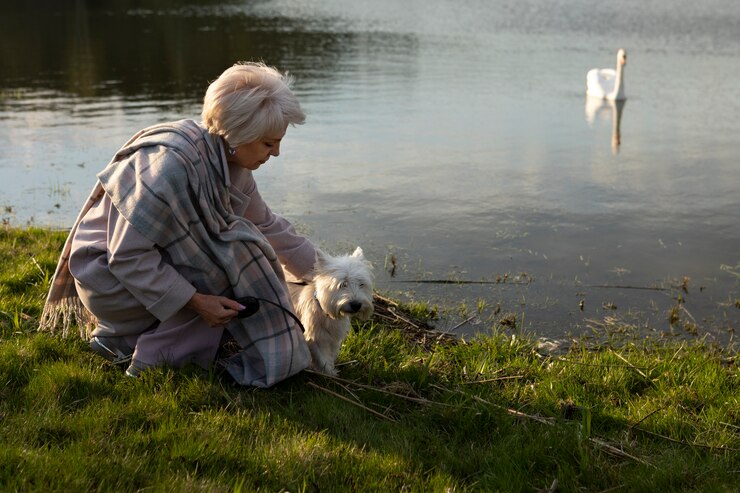Elizabeth Bowes Gregory, born on January 15, 1876, in Cleveland, Ohio, was a beacon of philanthropy and social reform. Known for her sharp intellect and unwavering commitment to making the world a better place, her life was marked by transformative contributions to education, healthcare, and community development. Elizabeth’s story is not just one of privilege but of purpose, vision, and relentless pursuit of equity and justice.
In this comprehensive account, we delve into the life and legacy of Elizabeth Bowes Gregory, exploring her early years, career achievements, marriage to John D. Rockefeller Jr., and her lasting impact on society. This article also addresses common questions about her life and influence.
Table of Contents
Early Life and Formative Years
Born into a privileged household in Cleveland, Elizabeth Bowes Gregory was the daughter of parents who deeply valued education and service. Her upbringing was steeped in an environment that encouraged intellectual curiosity and compassion for others. From an early age, Elizabeth demonstrated a remarkable aptitude for learning, which was nurtured through her education at prestigious institutions.
During her formative years, Elizabeth became acutely aware of the social and economic disparities that plagued society. This awareness shaped her worldview and ignited a lifelong passion for addressing systemic inequalities. Her experiences during her early education played a pivotal role in fostering her empathy and fueling her resolve to create meaningful change.
Her exposure to stark societal inequalities was not just a revelation but a call to action. Elizabeth’s privileged upbringing gave her the tools and resources to make a difference, but it was her personal conviction that drove her to dedicate her life to philanthropy and social reform.

Career and Philanthropic Achievements
Advocacy and Early Philanthropic Work
Elizabeth Bowes Gregory’s professional journey began with active participation in local charitable organizations. Her exceptional leadership skills and innovative ideas quickly set her apart as a trailblazer in the philanthropic world. Her early initiatives focused on providing relief to underprivileged communities while creating sustainable systems to ensure long-term benefits.
One of Elizabeth’s early contributions was her involvement in educational reform. Recognizing the transformative power of education, she worked tirelessly to improve access to quality education for marginalized groups. She believed that education was not just a pathway to individual success but a cornerstone for societal progress.
Founding Foundations for Change
Elizabeth’s most notable achievements include the establishment of multiple foundations aimed at addressing systemic issues in education, healthcare, and community development. These organizations not only provided immediate support but also emphasized sustainability, empowering communities to thrive independently.
Her initiatives in healthcare focused on improving access to medical facilities and pioneering public health campaigns. From funding hospitals to championing medical research, Elizabeth’s efforts significantly improved the quality of healthcare for countless individuals.
In education, her foundations provided scholarships, built schools, and supported teacher training programs. These initiatives aimed to bridge the educational gap and ensure that children from all backgrounds had equal opportunities to succeed.
Transforming Philanthropy with Visionary Leadership
Elizabeth Bowes Gregory revolutionized the philanthropic sector with her visionary approach. Unlike many of her contemporaries, she focused on creating systemic change rather than addressing symptoms of societal issues. Her work inspired a new wave of philanthropy that prioritized innovation, sustainability, and community empowerment.
Marriage to John D. Rockefeller Jr.
In 1901, Elizabeth Bowes Gregory married John D. Rockefeller Jr., heir to one of the most influential families in American history. Their union was not just a partnership of two individuals but a merger of shared values and aspirations. Together, they leveraged their immense wealth and influence to support a wide range of philanthropic causes.
The Rockefellers were deeply committed to using their resources for the betterment of society. While their lifestyle reflected their affluence, they remained grounded in their dedication to social causes. Elizabeth and John championed initiatives in education, healthcare, conservation, and cultural preservation.
A Partnership for Good
The couple’s collaboration extended beyond their personal lives into their shared philanthropic mission. They funded numerous projects, including the establishment of libraries, universities, and public health programs. Elizabeth’s keen sense of social responsibility complemented John’s strategic vision, making their partnership one of the most impactful in modern history.
Legacy and Lasting Impact
Elizabeth Bowes Gregory’s legacy is one of compassion, determination, and transformative change. She has made a lasting impact on society through her efforts in education, healthcare, and community development. Through her philanthropic efforts, she set new standards for social responsibility, inspiring future generations to follow in her footsteps.
Her work continues to influence philanthropic practices today, serving as a testament to the power of vision and generosity. Elizabeth’s life is a reminder that individuals can create lasting change when driven by a genuine desire to make the world a better place.

Conclusion
Elizabeth Bowes Gregory’s life was a remarkable journey of service and impact. From her early realization of societal inequities to her groundbreaking work in philanthropy, she exemplified the ideals of compassion, innovation, and dedication. Her partnership with John D. Rockefeller Jr. further amplified her influence, allowing her to touch countless lives and shape a better future for all.
As we reflect on Elizabeth’s achievements, we celebrate her unwavering commitment to social change and honor her enduring legacy. Her story inspires us to pursue our passions, serve our communities, and strive for a more equitable world.
Frequently Asked Questions (FAQs)
Who was Elizabeth Bowes Gregory?
Elizabeth Bowes Gregory was a philanthropist and social reformer born on January 15, 1876, in Cleveland, Ohio. She is best known for her contributions to education, healthcare, and community development, as well as her marriage to John D. Rockefeller Jr.
What were Elizabeth Bowes Gregory’s major contributions?
Elizabeth’s major contributions include founding charitable foundations focused on education and healthcare, advocating for social reforms, and pioneering sustainable philanthropic practices. Her work improved access to education, healthcare, and community resources for countless individuals.
How did Elizabeth Bowes Gregory influence philanthropy?
Elizabeth revolutionized philanthropy by emphasizing sustainability and systemic change. Her innovative approach inspired a new wave of social responsibility, setting higher standards for the philanthropic sector.
What was her relationship with John D. Rockefeller Jr.?
Elizabeth Bowes Gregory married John D. Rockefeller Jr. in 1901. Together, they formed a powerful partnership dedicated to philanthropy, supporting causes such as education, healthcare, and cultural preservation.
Why is Elizabeth Bowes Gregory’s legacy significant?
Elizabeth’s legacy is significant because of her transformative contributions to society. Her work in education, healthcare, and philanthropy continues to inspire individuals and organizations to prioritize compassion, innovation, and sustainability.
for any kind of updates please visit legwarmers



